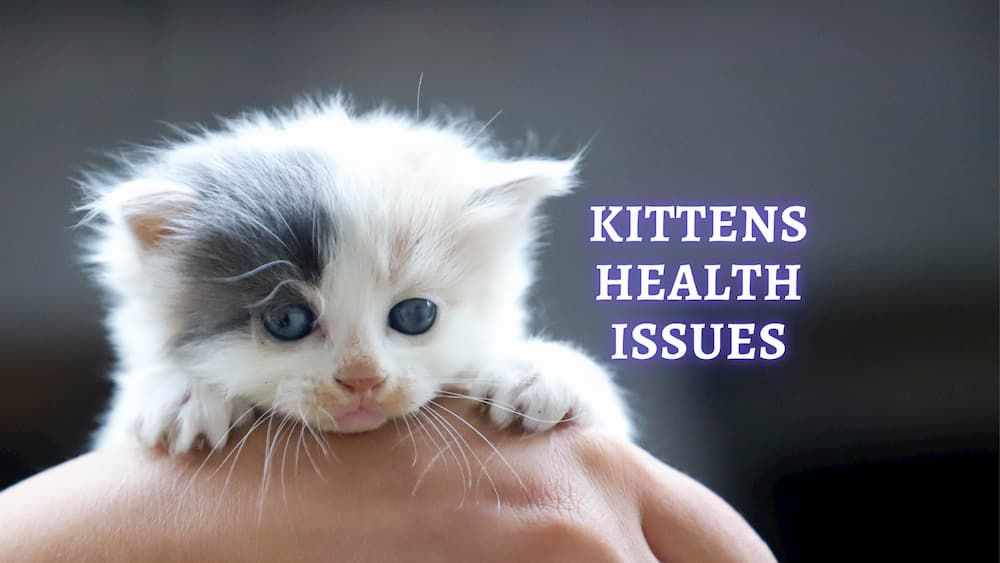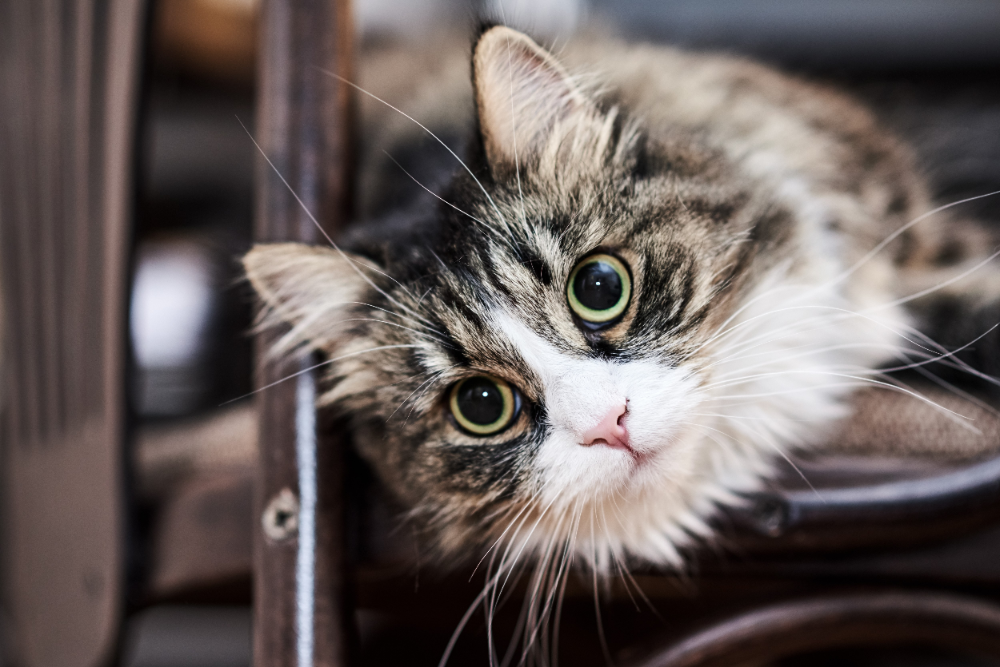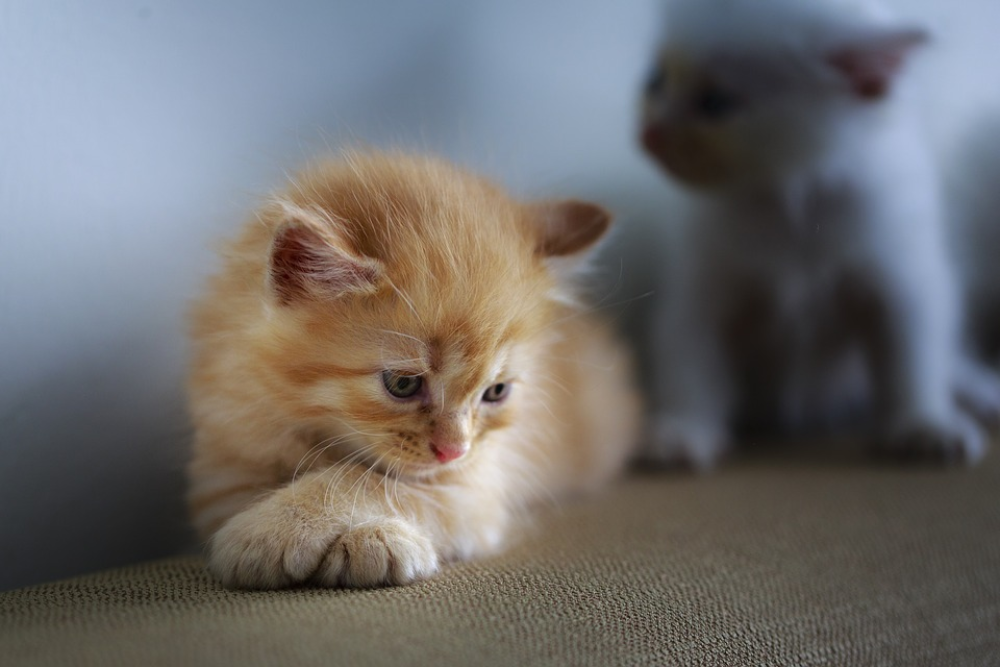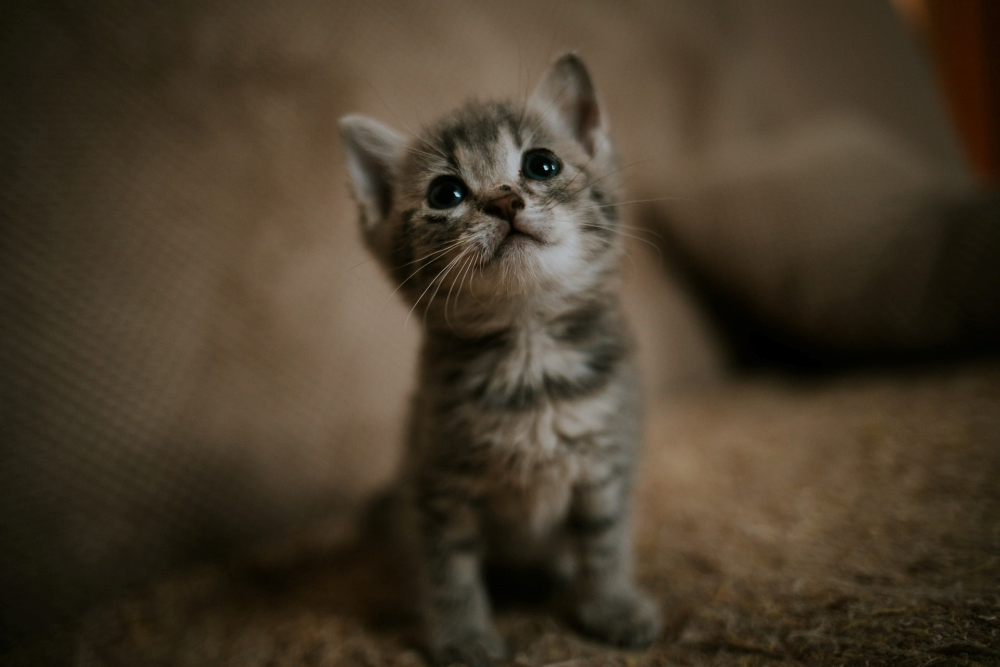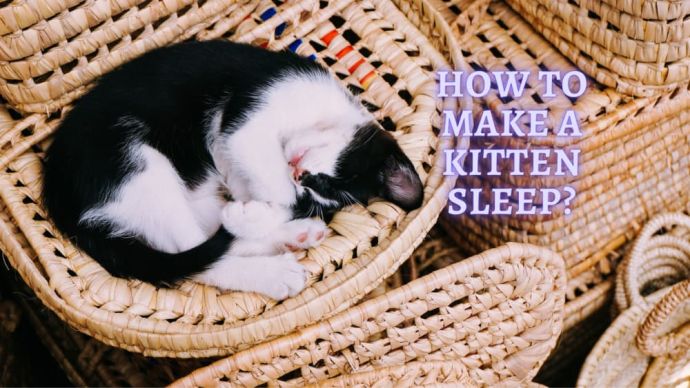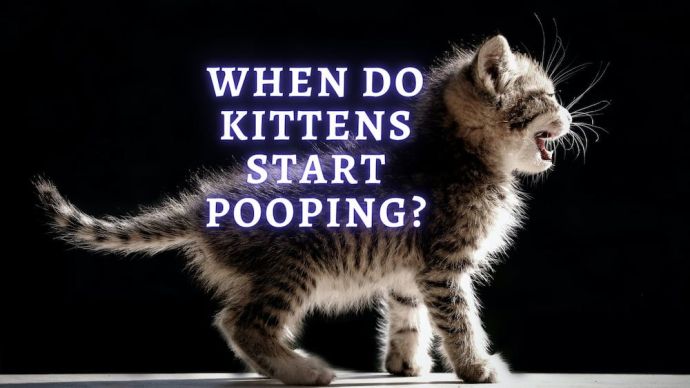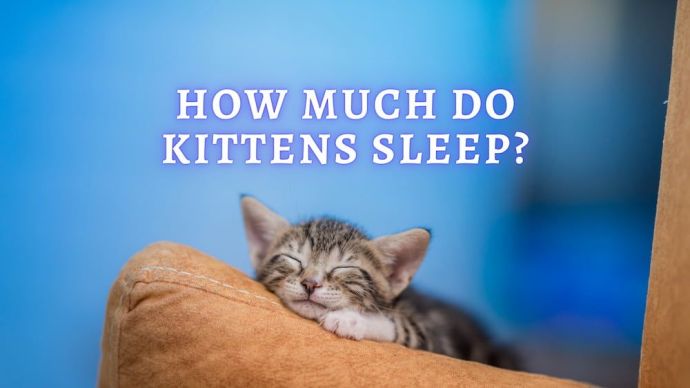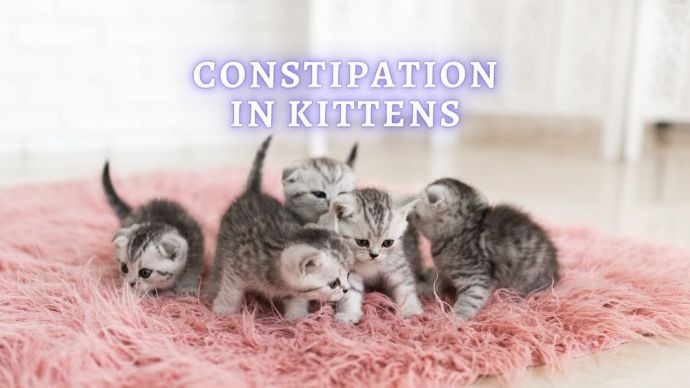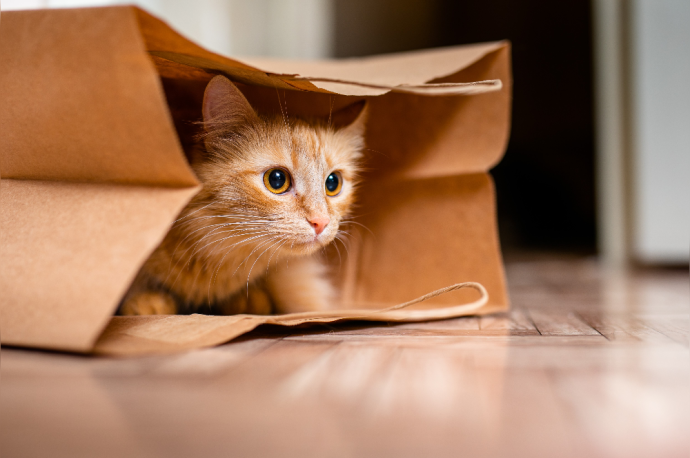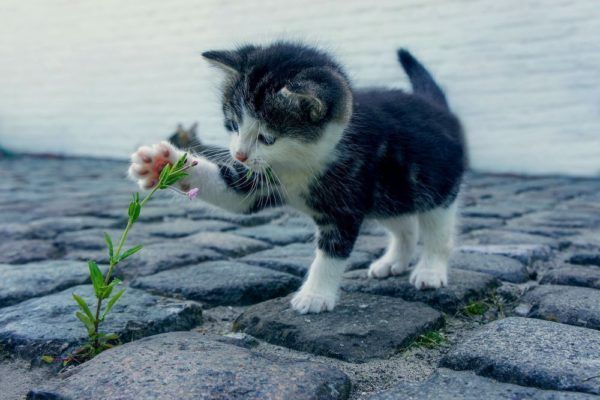Kitten Health Issues: Signs of a Sick Kitten
Written by:
Author: Dr. Linda Simon
Dr. Linda Simon is a veterinary surgeon working with seven years of experience. She is a fellow of the British Veterinary Association and specializing in animal medicine. Also, she has been the Woman magazine resident vet for the past two years and writes a regular column for them, focusing on pets and their health.
View all 30 articlesLearn about our editorial process and veterinary review board.
Viewed: 6323
Updated on: 07/21/2021
Kittens can either be born with health issues or develop them once they are out in the big evil world. Small kittens are particularly prone to becoming ill as they have yet to mount an effective immune system. Luckily, they do receive their mother’s antibodies in her milk, which is why it is so crucial for them to be fed in this manner.
Why do Kittens Become Sick?
Little ones can become ill when kept in an improper environment, such as an area that is too cold, dirty, or is overcrowded. For example, feral kittens born outside in harsh weather conditions may fail to thrive if too cold and wet to feed as they should.
A sick mother is unlikely to care for and nourish a litter, especially if her diet is not adequate. Those that have not been vaccinated may well be disease carriers and many of these diseases can be passed on in the womb and during lactation.
Lactating mothers require more calories and many will be fed on kitten food to provide the additional protein and energy that they need. Those that are malnourished may not be able to provide adequately for their offspring, who may quickly ‘fade’ and pass away after birth.
READ MORE: Best Probiotics for Cats
Can Kitten be born with a Disease?
While most kittens are born healthy, certain illnesses can be seen in young kittens, many of whom are already born. These include:
1. Parasites
The mother cat can pass on fleas and worms to their little ones either in their milk or externally. This is why it is important to treat kittens for parasites as early as two weeks of age and to continue their treatment throughout kitten-hood. Symptoms are not always obvious but can include itching and diarrhea.
2. Viral infections
Such as FIV, FELV, Calici and Herpes virus can all be passed from mother to kitten. The ‘cat flu’ viruses (Calici and Herpes) can cause symptoms such as runny eyes, reduced appetite, and sneezing. Symptoms should be mild in healthy cats but may be severe in those who have not received enough colostrum or are runts.
3. Neonatal Isoerythrolysis
This condition occurs when the mother’s immune cells attack the kitten’s red blood cells as they are seen as ‘foreign’. The mother’s antibodies are passed on in the first milk (colostrum). Symptoms can include jaundice (yellowing of the skin and the whites of the eyes) and failure to thrive.
4. Cerebellar Hypoplasia
If the mother was infected with the Panleukopenia virus while pregnant, one or several kittens could be affected. They may exhibit ‘jerky’ movements when walking and can find it hard to judge distances when jumping. There is no cure, but those that are mildly affected will live relatively normal lives.
5. Congenital defects
Some little ones are born with abnormalities, including cleft lips and palates, heart defects, and skeletal disorders. It may be genetic or may have been caused by something that happened to the mother cat during pregnancy, such as ingestion of a toxin.
Can kittens get Diseases from their Mothers?
The short answer is, yes. Though it seems biologically flawed for this to happen, kittens can become unwell because of their mother.
- One ‘obvious’ way in which this happens is when a cat passes on an inheritable disease in her DNA. Conditions such as achondroplasia, congenital deafness and heart disease may be passed from generation to generation. In some cases, they may skip a generation and often only some of the litter will be affected. There are a wide range of kitten diseases that can be passed on in this manner. Unfortunately, these inherited kitten diseases are not always ones we can treat.
- As kittens are in close contact with their mothers for weeks after she gives birth, they are also likely to catch infectious diseases from her, especially if she is displaying symptoms. As discussed, this can include parasites like fleas and ear mites and viral infections such as upper respiratory infections.
- A final consideration is through the mother’s milk. While this is the best source of nutrition for kittens and should only be replaced by formula if absolutely necessary, it does carry a small risk:
- FIV (Feline Immunodeficiency Virus) is one example of a virus that can be spread in this manner. This is a virus that is similar to HIV in humans but it cannot be spread to people.
- Roundworms (intestinal worms) are often very commonly passed on in milk. While kittens with roundworms will have rounded bellies, they will be skinny and find it hard to gain weight.
- If the mother cat has mastitis, the bacteria in her milk can theoretically make kittens unwell. This mainly occurs in very young kittens who will experience weight loss and fail to thrive.
READ MORE: When to Wean Kittens
Sick Kitten Symptoms
There are many different symptoms that a sick cat can display, depending on the underlying issue. When your pet ‘doesn’t seem right’ or isn’t acting as they normally should, there is likely something going on and it’s time to start the detective work.
A myriad of symptoms can be displayed by an unwell kitty including vomiting, diarrhea, and increased/decreased hunger, increased/decreased thirst, lethargy, cough or sneeze, panting, a bloated abdomen, etc. Often, an unwell cat will have quite vague symptoms that are hard to describe, such as a reluctance to play or a desire to hide away from the family. These signs can be seen with a range of illnesses and are simply an indicator that something is going on.
Much like in humans, which symptoms a cat will display depends entirely on the illness they have. However, symptoms are rarely specific for one specific thing, so a vet check (and often some diagnostic tests) is generally recommended. For example, coughing can be seen with asthma but it can also indicate an upper respiratory tract infection or lungworm. Similarly, increased appetite is a sign of diabetes, but those with an overactive thyroid also experience this symptom.
READ MORE: Raising a Kitten
Common Kitten Health Problems
These are the top three culprits that lead to kitten health issues:
1. Intestinal Worms
When at vet school, we were blithely informed that every kitten is born with a heavy worm burden. This is less likely true today as many responsible breeders will keep their queens up to date with a good quality wormer. Symptoms of worms will include A failure to thrive, difficulty in putting on weight, a bloated abdomen, and runny stools. Luckily, these parasites are easily treated with worming medicine. We should also clean the environment thoroughly to prevent re-infection.
2. Cat Flu
Cat Flu can make kittens very poorly and we can see signs such as nasal discharge, runny eyes, frequent sneezing, slow weight gain, and refusal to nurse. Treatment is supportive and symptomatic as there is no cure. This may mean a combination of bottle feeding and ‘nursing’. Owners will need to keep the kittens warm and clean away discharge from the eyes and nose frequently.
3. “Fading Kitten Syndrome”
It is a syndrome whereby kittens become very weak and unwell and can quickly pass away. It is one of the most common ‘illnesses’ in young, newborn kittens. Hypoglycemia, hypothermia, infection, and dehydration can all be at play. As with Cat Flu, the aim is to support these kittens with TLC and nursing while they rally.
Do runt Kittens have more Health Problems?
A ‘runt’ is defined as the smallest in the litter and it is not uncommon for one kitten to be born smaller and to remain smaller than the rest of its siblings. These kittens have typically received fewer nutrients in the womb and have a smaller appetite and are weaker once born.
In the early days, the runt can be more likely to pass away, mainly if they are not feeding well or being ‘bullied’ by the rest of the litter. They may well need an extra hand and some bottle feeding.
In some cases, the small size of the kitten is directly caused by a congenital defect such as a cleft palate, which In some cases, the small size the kitten is directly caused by a congenital defect such as a cleft palate, which makes feeding more difficult. So, it is always important to check runts over thoroughly for any direct cause of their reduced size.
READ MORE: Helping a Cat with Eye Injury
Is my Kitten the runt?
It is usually very easy to tell if your kitten is the runt. Runts, by definition, are smaller than their littermates. They are also smaller than the average kitten and will be noticeably lighter. Often, they look several weeks younger than their siblings in the early months.
How to take care of the Runt Kitten?
What additional needs your kitten will have will depend on why they are the runt. Those who simply got less food in the womb, may quickly catch up once on the outside and not need any extra care. Conversely, if the kitten is a runt due to an underlying disease such as cleft palate or heart disease, they may need some TLC.
- In the first few hours after birth, the mother cat may ignore the runt. While it seems harsh, this is nature’s way of ensuring the stronger kittens get the best chance of survival. So, it is up to us to be the little one’s advocate and push them to the front of the queue when its cleaning and feeding time.
- It is very important that we weigh them using an accurate weighing scales daily. We should record their weights to ensure they never lose weight and are steadily gaining.
- We should monitor their nursing and double check they are not bullied by the rest of the litter.
- Some will require supplemental feeds with bottles of kitten milk. Use a good quality formula that is made for cats. You may need to try out a few different teat types before finding one that works well.
- We should watch closely for signs of underlying disease such as fast or noisy breathing, milk coming through the nose or a bloated abdomen. A vet check is never a bad idea if there are any concerns.
- Give them lots of love. Plenty of handling and socialisation is just as important for the runt kitten as it is for the others. Most find that they develop a sweet spot for the runt who often has a larger than life personality. It is not unheard of for the breeder to keep these little fighters!
What can cause a Kitten to die?
Sadly, it’s true that sick kittens are far more likely to pass away than sick cats. Most deaths occur in the first week of life. This is because they have lower fat reserves and are more prone to low blood sugar and hypothermia. Those born to unvaccinated mothers and who perhaps did not get enough breast milk, typically have low levels of circulating antibodies and are less able to fight infection.
Some cats are born with congenital diseases (such as heart defects or intestinal malformations) which can make them very ill and, if left untreated, can cause them to die.
When a kitten is ill, we always need to take it seriously and many will need to be admitted to the veterinary clinic for intensive treatment, which may include oxygen therapy, antibiotics, and intravenous fluid therapy.
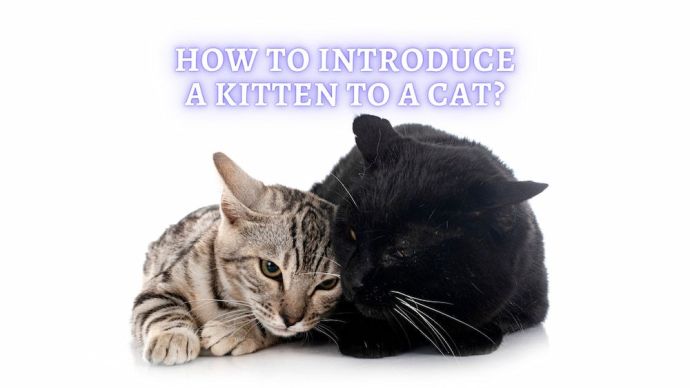 Kitten Care How Do I Introduce My Cat To A New Kitten? 7 Steps To Introduce Cats to Each Other
Kitten Care How Do I Introduce My Cat To A New Kitten? 7 Steps To Introduce Cats to Each Other - 84
- 0
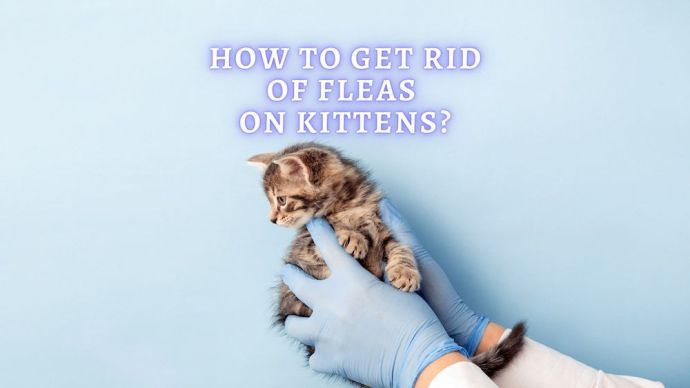 Kitten Care How To Get Rid Of Fleas On Kittens? Ways to Treat and Prevent Kitten Fleas
Kitten Care How To Get Rid Of Fleas On Kittens? Ways to Treat and Prevent Kitten Fleas - 124
- 0
 Cat Care Why Does My Cat Attack My Legs? 10 Reasons Why and What To Do About It (Vet-Approved Advice)
Cat Care Why Does My Cat Attack My Legs? 10 Reasons Why and What To Do About It (Vet-Approved Advice) - 45566
- 21
 Cat Veterinary Tips Cat Stomach Gurgling: Vet Advice on Why is Your Cat Stomach Gurgling?
Cat Veterinary Tips Cat Stomach Gurgling: Vet Advice on Why is Your Cat Stomach Gurgling? - 35340
- 4
 Cat Veterinary Tips My Cat Lost its Voice: Can Cats get Laryngitis? (Vet Advice)
Cat Veterinary Tips My Cat Lost its Voice: Can Cats get Laryngitis? (Vet Advice) - 23247
- 13









